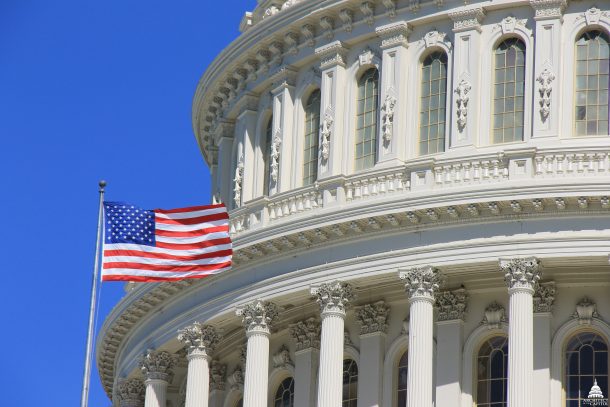Auto Industry Requests U.S. Government Help With Chip Shortage

The Alliance for Auto Innovation (AAI) is hard at work begging the federal government for help while the world continues coping with the semiconductor chip shortage, though it’s hardly the first time the industry has asked for or received administrative assistance. With pandemic lockdowns throwing global supply chains into a tailspin, U.S President Joe Biden said his administration would be seeking $37 billion and new legislation to address the chip shortage while federal agencies were directed to see what could be done in the interim.
But there’s little to be done with the brunt of the relevant manufacturing taking place in Asia, hence the AAI lobby requesting U.S. Commerce Department set aside some cash for domestic chip production in a new bill.
According to Alliance for Auto Innovation CEO John Bozzella the funding should “be used to build new capacity that will support the auto industry and mitigate the risks to the automotive supply chain evidenced by the current chip shortage.”
The suggested rules would give the automotive sector priority, though it should be said that the industry has likely suffered the worst from the chip deficit. That doesn’t necessarily make it the most deserving but we’ve been chronicling carmakers idling factories for months. Many are desperate for semiconductors so they can continue supplying some of their most lucrative vehicles.
Reporting from Reuters claimed the AAI said the U.S. government could specify “a particular percentage – that is reasonably based on the projected needs of the auto industry – be allocated for facilities that will support the production of auto grade chips in some manner.”
From Reuters:
Automakers have been hit particularly hard by the global chip shortage after many cancelled orders when auto plants were idled during the coronavirus pandemic.
When they were ready to recommence production, they found that chipmakers were busy fulfilling orders for the consumer electronics industry which as seen demand for premium devices – both for work and leisure – boom as people spent more time at home.
Most automakers have been hit by the shortage. In recent announcements, Ford said last week it would cut output at seven North American assembly plants, while Kia Motors said it was cutting two days of production in Georgia.
Our take? The government hasn’t had the best track record when it comes to making sound financial decisions and corporate lobbying groups rarely contribute anything of value to society. But there needs to be a push to bring back manufacturing to the United States after the pandemic has proven the nation to be woefully dependent on global supply chains.
Automakers are going to insane lengths to maintain volume, even as demand has started to dwindle, due to the semiconductor shortage and it’s not even the only component that’s holding up production. Things are still backed up just about everywhere. But, if putting this plan into action results pivots the sad trajectory we’re currently on (without creating additional problems), then it’s going to be difficult to bash. We just hope it’s as effective and fast-acting as a prescription laxative.
[Image: AOC.gov]

A staunch consumer advocate tracking industry trends and regulation. Before joining TTAC, Matt spent a decade working for marketing and research firms based in NYC. Clients included several of the world’s largest automakers, global tire brands, and aftermarket part suppliers. Dissatisfied with the corporate world and resentful of having to wear suits everyday, he pivoted to writing about cars. Since then, that man has become an ardent supporter of the right-to-repair movement, been interviewed on the auto industry by national radio broadcasts, driven more rental cars than anyone ever should, participated in amateur rallying events, and received the requisite minimum training as sanctioned by the SCCA. Handy with a wrench, Matt grew up surrounded by Detroit auto workers and managed to get a pizza delivery job before he was legally eligible. He later found himself driving box trucks through Manhattan, guaranteeing future sympathy for actual truckers. He continues to conduct research pertaining to the automotive sector as an independent contractor and has since moved back to his native Michigan, closer to where the cars are born. A contrarian, Matt claims to prefer understeer — stating that front and all-wheel drive vehicles cater best to his driving style.
More by Matt Posky
Latest Car Reviews
Read moreLatest Product Reviews
Read moreRecent Comments
- Calrson Fan We are already seeing multiple manufacturers steering away from EVs to Hybrids & PHEVs. Suspect the market will follow. Battery tech isn't anywhere close to where it needs to be for EV's to replace ICE's. Neither is the electrical grid or charging infrastructure. PHEV's still have the drawback that if you can't charge at home your not a potential customer. I've heard stories of people with Volts that never charge them but that's a unique kind of stupidity. If you can't or don't want to charge your PHEV then just get a hybrid.
- AZFelix The last time I missed the Malibu was when one swerved into my lane and I had to brake hard to avoid a collision. 1 out of 5⭐️. Do not recommend.
- 2ACL I won't miss it; it was decent at launch, but in addition to the bad packaging, GM did little to keep it relevant in the segment. I'd prefer that another domestic automaker doesn't just give up on the mainstream sedan, but unlike some of Ford's swan songs, the Malibu made an indifferent case for why they should live.
- ToolGuy TG grows weary of purchasing gasoline. I don't care so much how or why, I am just tired of it. I still buy petroleum products, not 'boycotting oil,' but backing away from gasoline where I can. Sample size = 1.
- Probert Maybe it's not too late for the Dodge Neon I've always dreamed of!!! To the keyboard Robin!


































Comments
Join the conversation
Another aspect not discussed is the nearly universal adoption of LEAN manufacturing processes. "Just in time" supply lines have been disrupted directly or indirectly by COVID-19, natural disasters, and oddities like the EverGiven plugging the Suez canal. Governments need to look at offshored manufacturing but also the lack of critical inventory. The world is becoming an increasingly hostile place. Relationships need to be bolstered but so do reserve capacity and storage.
So they are going to spend $37.000,000,000 of taxpayer money to solve this problem? Incredible.